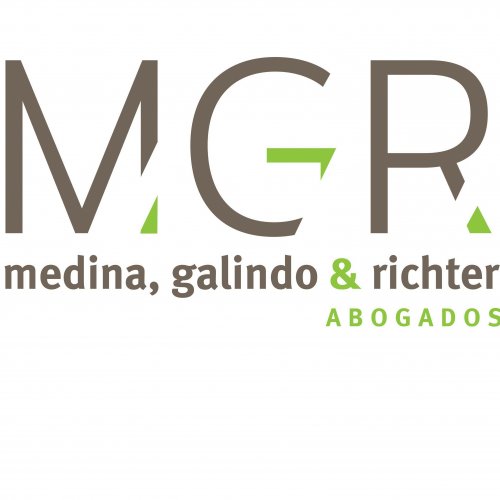Best Real Estate Lawyers in Bolivia
Share your needs with us, get contacted by law firms.
Free. Takes 2 min.
Free Guide to Hiring a Real Estate Lawyer
Or refine your search by selecting a city:
List of the best lawyers in Bolivia
About Real Estate Law in Bolivia
Real Estate in Bolivia has become an increasingly dynamic sector, driven by economic growth and an expanding middle class. Bolivia offers a range of opportunities for both local and international investors looking to engage in property transactions, whether for residential, commercial, or agricultural purposes. The legal landscape surrounding real estate in Bolivia includes various laws and regulations that govern land ownership, property transactions, leasing, and development. Understanding these regulations is crucial for anyone seeking to invest or manage real estate in the country.
Why You May Need a Lawyer
Engaging a lawyer specializing in real estate in Bolivia can be critical in several situations. Common scenarios include:
- Buying or selling property: A lawyer can help ensure the transaction is legal, understand the terms of the contract, and manage any associated taxes.
- Property disputes: Assistance in resolving issues such as boundary disputes, claims of ownership, or property inheritance matters.
- Lease agreements: Drafting and reviewing rental contracts to protect the rights of landlords or tenants.
- Development projects: Navigating zoning laws, obtaining necessary permits, and handling environmental regulations.
- Title searches and due diligence: Ensuring the property title is clear from any liens or other encumbrances before purchase.
Local Laws Overview
Several key aspects of Bolivian law are pertinent to real estate:
- Property Ownership: The Bolivian Constitution guarantees property rights, but it is essential to obtain clear documentation and registration of property titles.
- Registration: All property transactions must be registered with the Property Registry to be legally recognized.
- Foreign Ownership: While there are opportunities for foreign investors, there are restrictions, particularly on rural and border properties.
- Zoning and Land Use: Local municipalities have specific zoning laws that dictate land use planning and development.
- Taxation: Real estate transfers are subject to taxes such as the Property Transfer Tax (Impuesto a las Transacciones) and municipal taxes.
Frequently Asked Questions
What are the main steps in buying property in Bolivia?
Conduct due diligence, agree on terms with the seller, sign a preliminary contract, pay deposit, notarize the purchase agreement, and register the property.
Can foreigners own real estate in Bolivia?
Yes, foreigners can own property, but there are restrictions on rural and frontier areas. Consult with a lawyer for guidance.
What is the role of a notary in a property transaction?
Notaries formalize property transactions, ensuring all legal requirements are met, and facilitate the registration process.
How can I verify the title to a property?
Through a property title search at the local Property Registry to confirm ownership and encumbrances.
Are there restrictions on selling property quickly after purchase?
There are no specific time restrictions, but tax implications may vary, and it’s vital to consult with a legal expert.
What taxes are involved in real estate transactions?
Taxes may include the Property Transfer Tax, municipal property taxes, and legal fees for registration and notary services.
How can zoning laws affect my property use?
Zoning laws regulate how land is used; violations can result in fines or legal action, so compliance is crucial.
Do I need permits for home renovations?
Yes, particularly for significant structural changes. It’s essential to check local regulations and obtain necessary permits.
What should I do if I have a property dispute?
Consult a legal professional to explore dispute resolution options, including mediation or court proceedings if necessary.
How can I ensure my rental agreement protects my interests?
Have a lawyer draft or review your rental agreement to ensure it meets legal requirements and protects your rights.
Additional Resources
Consider the following resources and organizations for further information and assistance:
- Bolivian Notary Public: For notarizing documents and formalizing transactions.
- National Agrarian Institute (Instituto Nacional de Reforma Agraria): For land use and agrarian matters.
- Local Municipality Offices: For zoning and development permits and regulations.
- Property Registries: For title verification and registration.
- Legal Advisors and Real Estate Agents specializing in Bolivian property markets.
Next Steps
If you need legal assistance in real estate in Bolivia, consider the following steps:
- Research and contact reputable real estate lawyers familiar with Bolivian laws.
- Prepare necessary documents related to your case or transaction.
- Schedule consultations to discuss your situation and obtain legal advice tailored to your needs.
- Consider working with bilingual professionals if you are not fluent in Spanish, as this will help ensure clear communication and understanding of legal terms.
Taking these steps will help you navigate the complexities of real estate transactions and laws in Bolivia effectively.
Lawzana helps you find the best lawyers and law firms in Bolivia through a curated and pre-screened list of qualified legal professionals. Our platform offers rankings and detailed profiles of attorneys and law firms, allowing you to compare based on practice areas, including Real Estate, experience, and client feedback.
Each profile includes a description of the firm's areas of practice, client reviews, team members and partners, year of establishment, spoken languages, office locations, contact information, social media presence, and any published articles or resources. Most firms on our platform speak English and are experienced in both local and international legal matters.
Get a quote from top-rated law firms in Bolivia — quickly, securely, and without unnecessary hassle.
Disclaimer:
The information provided on this page is for general informational purposes only and does not constitute legal advice. While we strive to ensure the accuracy and relevance of the content, legal information may change over time, and interpretations of the law can vary. You should always consult with a qualified legal professional for advice specific to your situation.
We disclaim all liability for actions taken or not taken based on the content of this page. If you believe any information is incorrect or outdated, please contact us, and we will review and update it where appropriate.
Browse real estate law firms by service in Bolivia
Bolivia Attorneys in related practice areas.
Browse real estate law firms by city in Bolivia
Refine your search by selecting a city.















